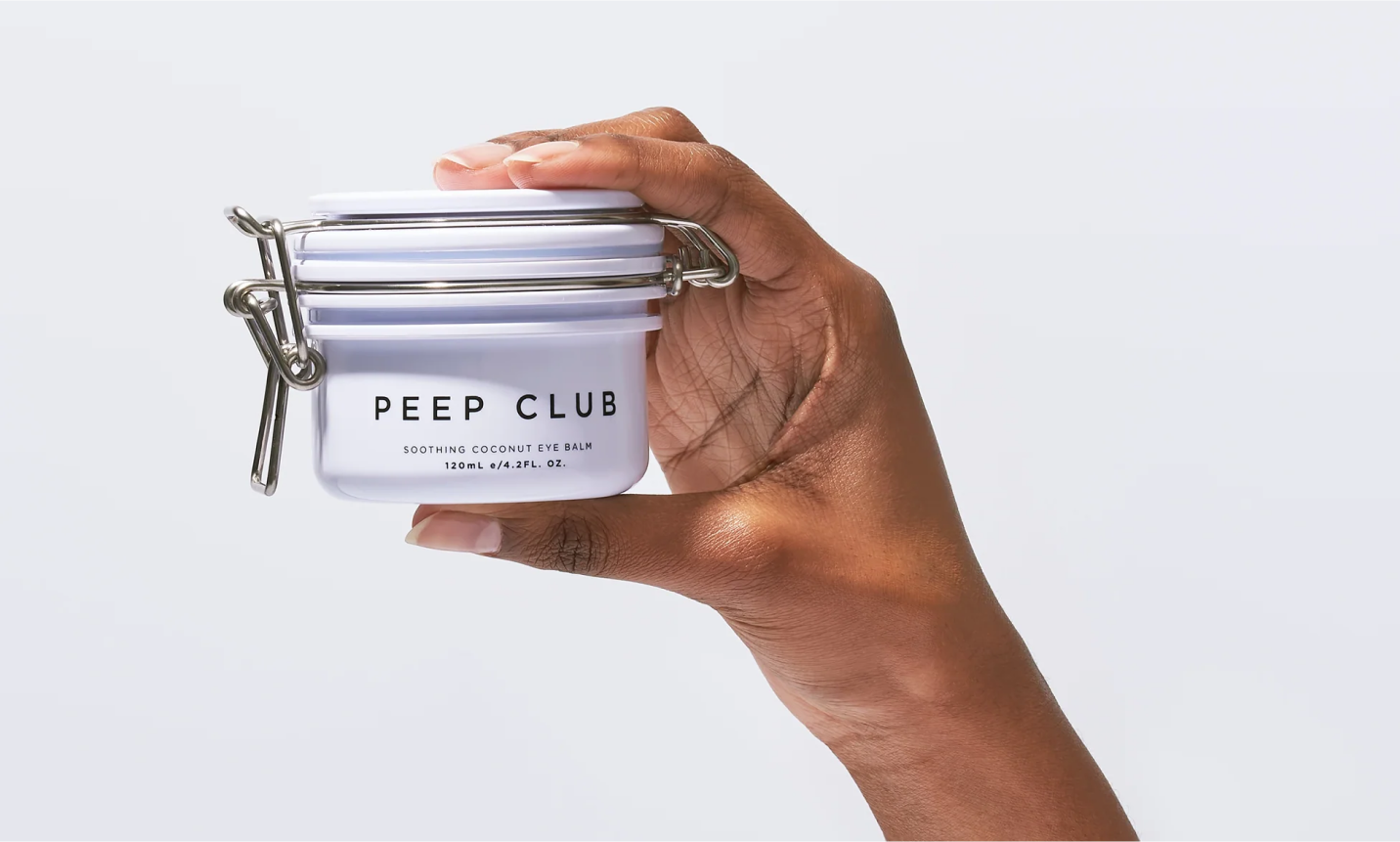
Can Menopause cause Dry Eyes?
In a word, yes!
Dry Eyes are a common, but less understood, symptom of menopause and perimenopause. So common in fact, that it is estimated 2/3 of women over 50 will experience symptoms of Dry Eyes. Menopause-related dry eye is a particular passion of Peep Club’s two female founders, below we share the most up to date research to help you understand and manage your Dry Eyes.
Why does menopause cause Dry Eyes?
The hormonal changes that women go through during menopause have a wide systemic effect – from your eyes to your skin – the effects can be summed up in one word: dry.
Most research agrees that menopause-related Dry Eyes is the result of decreased production of the hormone oestrogen but newer research has also found that decreased production of the hormone androgen might also play a role.
Oestrogen and androgen, are both known to regulate the production, quality and flow of both the water and oil components of your tears – which are produced by the lacrimal gland and the meibomian glands respectively. The disruption to these two glands means that the eye becomes irritated and inflamed and starts to produce a poorer quantity and quality of tears as a result. As our tears exist to keep the eye surface hydrated and nourished, this is ultimately what causes the Dry Eyes.
What are the symptoms of menopause-related Dry Eyes?
The symptoms of menopause-related dry eye are the same as for any dry eye sufferer:
- Burning
- Itching
- Redness
- A ‘gritty’ feeling
- Ironically, over watering of the eyes is a common symptom of Dry Eyes. Especially over tearing when in windy or bright conditions
- Feeling like a foreign body is in the eye
- Blurred vision
- A tired, heavy feeling of your eyes
4 practical things you can do to help menopause-related Dry Eyes?
Air-conditioning can exacerbate Dry Eyes by accelerating how quickly your tears evaporate off your eyes. Try to sit away from air conditioning units or fans.
During winter, when the climate tends to be drier, many women often notice their Dry Eyes getting worse. Adding a humidifier to a room can counter-balance the change in environment and help improve comfort.
It’s not hard to believe Darin Olien, author of Superlife, when he says that most of us are chronically dehydrated. Dry Eyes can often be a symptom of an overall systemic dehydration. Increasing your water consumption to 2-3 litres per day can help ensure that your eyes can produce enough of the watery component of your tears to make a difference in many dry eye cases. On the flip side of the dehydration coin, is to reduce caffeine consumption. Caffeine dehydrates the body so trying to cut down on coffee, tea and soft drinks like coke can help improve the overall hydration of your body. Try alternatives; like herbal teas (we love rooibos, chamomile and peppermint) or a turmeric latte (there’s a great recipe on our Instagram highlights) or sparkling water.
You’ll often hear eye doctors talk of the 20-20-20 rule when working whereby we advise you to take a break from your work every 20 minutes and spend at least 20 seconds looking 20 feet (about 6 meters) into the distance). This rule helps prevent eye strain but also is a good way to help rehydrate your eyes. Did you know you blink 6-8x less when you’re staring a screen or doing a high-concentration near-work task like reading? Making a point of taking a break to look into the distance, and also consciously blink is an easy and all-natural way to ensure your eyes are getting the hydration and nourishment that they need.
Using a hot compress can help unblock the oil from the Meibomian Glands which can help your tears stay on your eyes longer, helping to soothe Dry Eye symptoms. Lubricating eye drops or a spray can be used as a substitute for your own tears – especially if the underlying cause of your dry eyes is a reduction in tear production.
What about Hormone Replacement Therapy and Dry Eyes?
Hormone Replacement Therapy (HRT) may have been recommended to help with a smoother menopausal transition. HRT is largely focused on increasing oestrogen production, which among other things, can decrease the risk of several sight-threatening eye diseases. Unfortunately, HRT has been found to increase the risk of getting Dry Eyes (especially if it is done 4-7 times). It is not yet fully understood why HRT might increase dry eye risk or severity. but one theory is that while HRT focuses on increasing the hormones oestrogen and, on some cases, also progesterone, it is the role of the hormone androgen and the balance between androgen and oestrogen that regulates Dry Eyes. More research is needed to fully understand the link between HRT and Dry Eyes.
Some resources that we love to help with menopause:
Resources:
https://www.allaboutvision.com/over40/dry-eyes-menopause.htm

